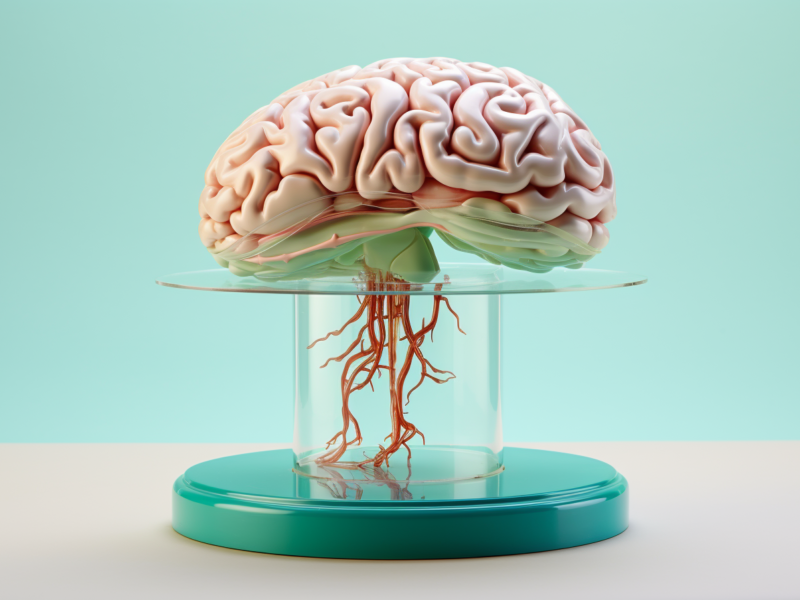In today’s health-conscious world, individuals are constantly seeking natural ways to improve their well-being and longevity. One compound that has gained significant attention among researchers in recent years is resveratrol. Derived primarily from grapes and red wine, this powerful antioxidant has been found to offer a wide range of benefits for our overall health. From boosting cardiovascular function to combating cellular aging processes, the health benefits of resveratrol are truly impressive. In this article, we will delve into the numerous reasons why incorporating resveratrol into your daily routine may be a wise choice for supporting your optimal wellness journey. Prepare to discover the fascinating realm of resveratrol and uncover its potential contributions towards achieving a healthier, more vibrant life.
Resveratrol and Heart Health
Resveratrol, a powerful antioxidant found in grapes and red wine, has gained attention from researchers due to its potential benefits for heart health. Studies have suggested that resveratrol may help boost cardiovascular function by reducing inflammation and improving blood flow. It is believed to promote the production of nitric oxide, a molecule that helps relax blood vessels, leading to lower blood pressure levels.
 Additionally, resveratrol’s antioxidant properties are thought to combat cellular aging processes and oxidative stress – two factors known to contribute to heart disease development.
Additionally, resveratrol’s antioxidant properties are thought to combat cellular aging processes and oxidative stress – two factors known to contribute to heart disease development.
By neutralizing free radicals and reducing plaque formation in arteries, it may play a protective role against heart diseases such as coronary artery disease or stroke.
Incorporating resveratrol into one’s diet through foods like grapes or drinking moderate amounts of red wine has been encouraged as part of a healthy lifestyle for improved cardiovascular health. However, more research is still needed to fully understand the extent of resveratrol’s impact on heart health and whether supplementation can provide significant benefits.
Resveratrol’s Role in Cancer Prevention
Resveratrol has shown promising potential in cancer prevention. Several studies have demonstrated its ability to inhibit the growth and spread of various types of cancers, including breast, prostate, colon, and skin cancer. Resveratrol works by interfering with key mechanisms involved in tumor development and progression. It can induce apoptosis (programmed cell death) in cancer cells, suppress inflammation and angiogenesis (formation of new blood vessels needed for tumor growth), and inhibit the activity of certain enzymes that promote tumor growth. Additionally, resveratrol has been found to enhance the effectiveness of conventional chemotherapy drugs when used in combination.
One mechanism through which resveratrol exerts its anticancer effects is by activating sirtuins. Sirtuins are a family of proteins involved in regulating cellular metabolism and stress responses. They have been implicated in promoting longevity and protecting against age-related diseases such as cancer. Resveratrol activates these sirtuin proteins, enhancing their protective functions against DNA damage induced by carcinogens or oxidative stress. Furthermore, resveratrol has antioxidant properties that can help neutralize harmful free radicals produced during normal cellular processes or exposure to environmental toxins.
While more research is needed to fully understand the potential benefits of resveratrol in preventing cancer, current evidence suggests that it holds promise as a natural compound capable of inhibiting various aspects of tumorigenesis. However, it’s important to note that further clinical trials are necessary before definitive conclusions can be drawn regarding optimal dosages and treatment regimens for using resveratrol as an anti-cancer agent.
The Anti-inflammatory Effects of Resveratrol
Resveratrol has been found to possess strong anti-inflammatory properties, making it a potential natural remedy for various inflammatory conditions. Studies have shown that resveratrol can inhibit the production of inflammatory molecules and enzymes in the body, thereby reducing inflammation and its associated symptoms. By suppressing inflammation, resveratrol may help alleviate symptoms of chronic diseases such as arthritis, cardiovascular disease, and certain types of cancer.
Furthermore, research suggests that resveratrol’s anti-inflammatory effects extend to the brain. Chronic inflammation in the brain has been linked to neurodegenerative disorders like Alzheimer’s disease and Parkinson’s disease. Resveratrol’s ability to reduce inflammatory markers in the brain suggests that it could potentially protect against these conditions by promoting brain health.
Overall, incorporating resveratrol into one’s diet or through supplementation may provide significant anti-inflammatory benefits for overall health and well-being. However, further research is needed to fully understand its therapeutic potential in treating specific diseases and how best to incorporate it into our daily lives.
Resveratrol’s Impact on Brain Health and Cognitive Function
Resveratrol’s impact on brain health and cognitive function has been the subject of extensive research. Studies have shown that resveratrol is able to cross the blood-brain barrier, allowing it to directly affect brain cells.

This powerful antioxidant has been found to protect against oxidative stress and inflammation, two factors that contribute to neurodegenerative diseases such as Alzheimer’s and Parkinson’s.
In addition, resveratrol has been found to enhance cognitive function by promoting the growth of new nerve cells in the hippocampus, a region of the brain involved in memory and learning.
It also activates proteins known as sirtuins, which are involved in regulating processes such as energy metabolism and DNA repair. By activating these proteins, resveratrol may help improve overall brain function and reduce age-related decline in cognitive abilities. Overall, the research suggests that incorporating resveratrol into one’s diet or taking it as a supplement may have significant benefits for brain health and cognitive function. However, it is important to note that more studies are needed to fully understand its effects and determine optimal dosages for different individuals.
Resveratrol and Anti-Aging Benefits
Resveratrol, a powerful antioxidant found in grapes and red wine, has been the subject of much research due to its potential anti-aging benefits. Studies have shown that resveratrol can help boost cardiovascular function by improving blood flow and reducing inflammation. It also shows promise in combating cellular aging processes by activating certain genes involved in longevity.
One of the key ways that resveratrol may contribute to anti-aging is through its ability to activate a protein called sirtuin 1. Sirtuin 1 is known to be involved in various biological pathways related to aging, including DNA repair and regulation of energy metabolism. By activating this protein, resveratrol may help slow down the aging process at a cellular level.
In addition, resveratrol has been found to have positive effects on cognition and brain health. Animal studies have shown that it can improve memory and learning abilities, potentially protecting against age-related cognitive decline.
Overall, incorporating resveratrol into your diet or taking it as a supplement may offer numerous anti-aging benefits for your overall health and well-being. However, more research is needed to fully understand its mechanisms of action and determine optimal dosages for different individuals.
Resveratrol and Weight Management
Resveratrol, a compound found in grapes and red wine, has been linked to weight management. Research suggests that resveratrol may help regulate body weight by improving metabolism and reducing fat storage. It has been shown to activate enzymes that break down fats and increase the production of adiponectin, a hormone that helps regulate glucose levels and fatty acid breakdown.
Additionally, resveratrol has been found to suppress the appetite, leading to reduced calorie intake. Studies have shown that it can decrease food cravings and increase feelings of fullness after meals. This can ultimately contribute to maintaining a healthy weight.
While more research is needed to fully understand the effects of resveratrol on weight management, the current evidence suggests that incorporating this powerful antioxidant into one’s diet may be beneficial for those looking to manage their weight naturally and effectively.

Resveratrol as a Potential Treatment for Diabetes
Resveratrol, a compound found in grapes and red wine, has shown potential as a treatment for diabetes. It has been found to improve insulin sensitivity and regulate blood sugar levels, both of which are critical in managing diabetes. Resveratrol activates certain proteins that enhance insulin signaling pathways, leading to improved glucose uptake by cells. Additionally, it reduces inflammation and oxidative stress, known risk factors for the development of diabetes complications. Studies have also suggested that resveratrol may protect the pancreas from damage caused by high blood sugar levels.
The potential of resveratrol as a treatment for diabetes is promising but further research is needed to establish its efficacy and determine optimal dosages. However, incorporating resveratrol-rich foods such as grapes or red wine into a balanced diet may offer additional health benefits and potentially help manage diabetes symptoms. As with any alternative treatment approach, it is important to consult with healthcare professionals before making any significant changes in your diabetes management plan.
FAQs
Q: What are the health benefits of Resveratrol?
A: Resveratrol is a powerful antioxidant found in red wine, and it has several health effects. The 7 health benefits of Resveratrol include its ability to protect the heart and brain, help keep weight under control, and potentially prolong lifespan. Additionally, many studies have found that Resveratrol inhibits the growth of cancer cells and supports mental sharpness.
Q: What are the sources of Resveratrol?
A: Resveratrol is found naturally in several foods, such as the skin of grapes, blueberries, raspberries, mulberries, and peanuts. However, the amount found in these sources can vary, and it may be difficult to consume enough through diet alone. That’s where a Resveratrol supplement can be beneficial.
Q: How does Resveratrol protect the heart?
A: Many studies have found that Resveratrol protects the heart by reducing inflammation, preventing the oxidation of LDL (bad) cholesterol, and making it more difficult for clots to form. It is thought the mechanisms of Resveratrol provide a protective effect on the cardiovascular system.
Q: What is the suggested dosage of a Resveratrol supplement?
A: The right dose of Resveratrol can vary depending on factors such as the user’s health and age. However, many studies are based on a dosage of 200 to 500 milligrams per day. Always consult with a healthcare professional before starting any supplementation program.
Q: Can Resveratrol treatment help with weight management?
A: Resveratrol is thought to help with weight management by affecting fat cells and having a positive influence on calorie restriction. Some studies found that Resveratrol decreases fat storage and increases the amount of energy the body burns. Consequently, Resveratrol administration can potentially aid weight loss when accompanied by a healthy lifestyle.
Q: What does ‘activity of Resveratrol’ mean?
A: The ‘activity of Resveratrol’ refers to its biochemical actions inside the body. Resveratrol is a polyphenol that modulates many pathways in the body, contributing to its health benefits. These molecular mechanisms of Resveratrol vary based on its dosage, form, and how it’s administered.
Q: How does Resveratrol protect the brain?
A: Resveratrol is thought to protect the brain by several mechanisms. One particular method is by hindering the formation of beta-amyloids, harmful plaques that are a hallmark of Alzheimer’s disease. Furthermore, some studies found that Resveratrol increased blood flow to the brain, potentially improving cognitive abilities.
Q: What is the bioavailability of Resveratrol?
A: Bioavailability refers to how much of a substance is absorbed and used by the body. The bioavailability of Resveratrol is relatively low due to its rapid metabolism and elimination. However, taken in supplement form, Resveratrol’s bioavailability can be enhanced through specific technologies.
Q: Can Resveratrol supplements help with anti-aging?
A: Resveratrol supplements may aid in anti-aging due to their potential to activate certain proteins in the body called sirtuins. These proteins are connected to longevity. However, more research is needed to fully understand Resveratrol’s potential as a therapeutic anti-aging treatment.
Q: Can Resveratrol protect against cancer?
A: Several studies have shown that Resveratrol protects against cancer by inhibiting the growth of many types of cancer cells and inducing apoptosis (cell death). It’s shown to be effective at different stages of the cancer process, from the initiation to the progression. While these findings are promising, more research is needed.



 Natural Sources of Resveratrol
Natural Sources of Resveratrol
